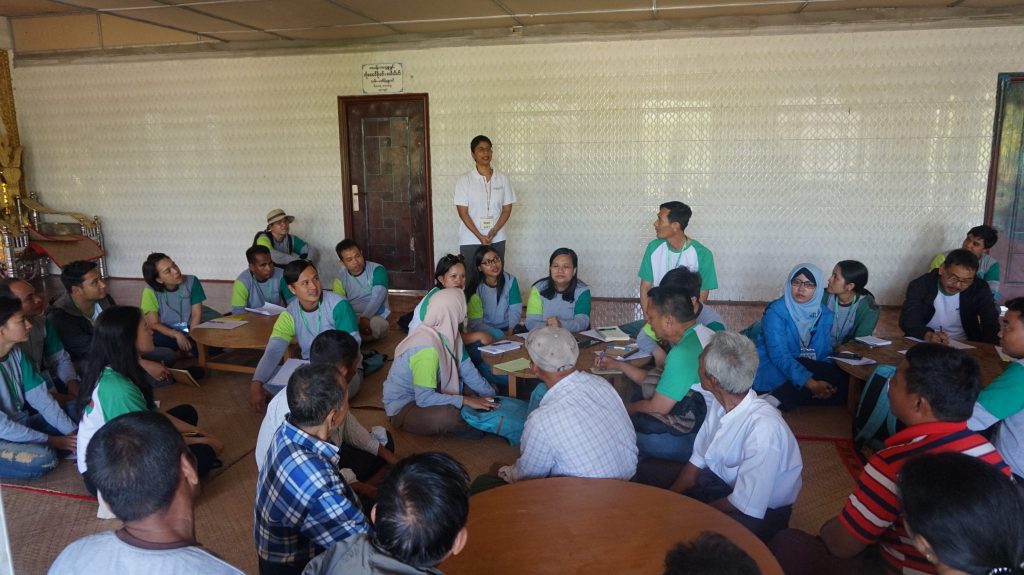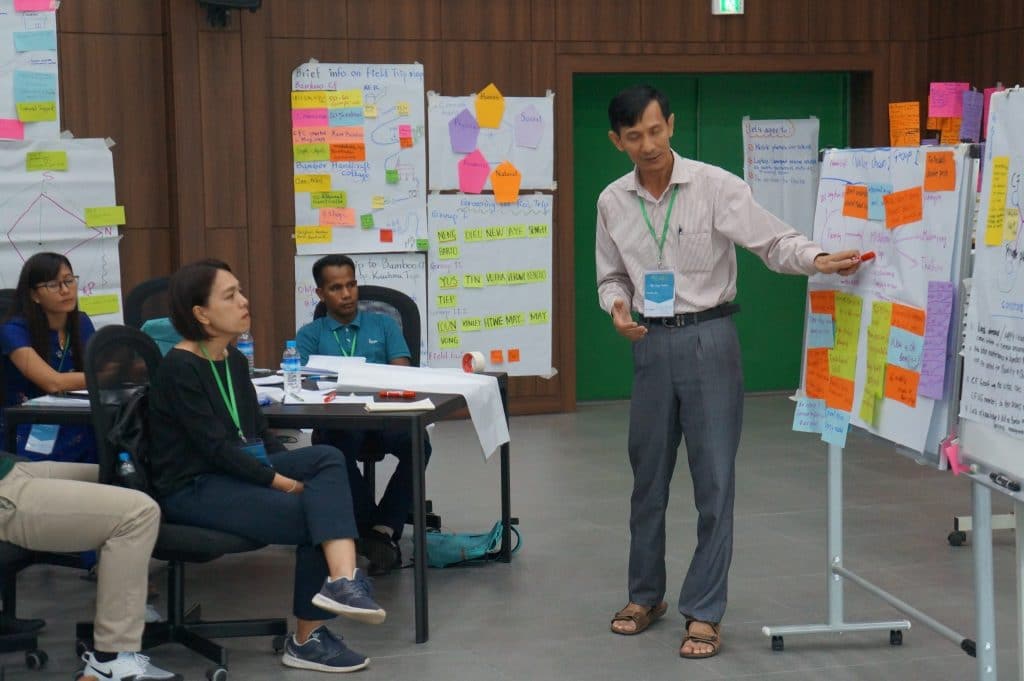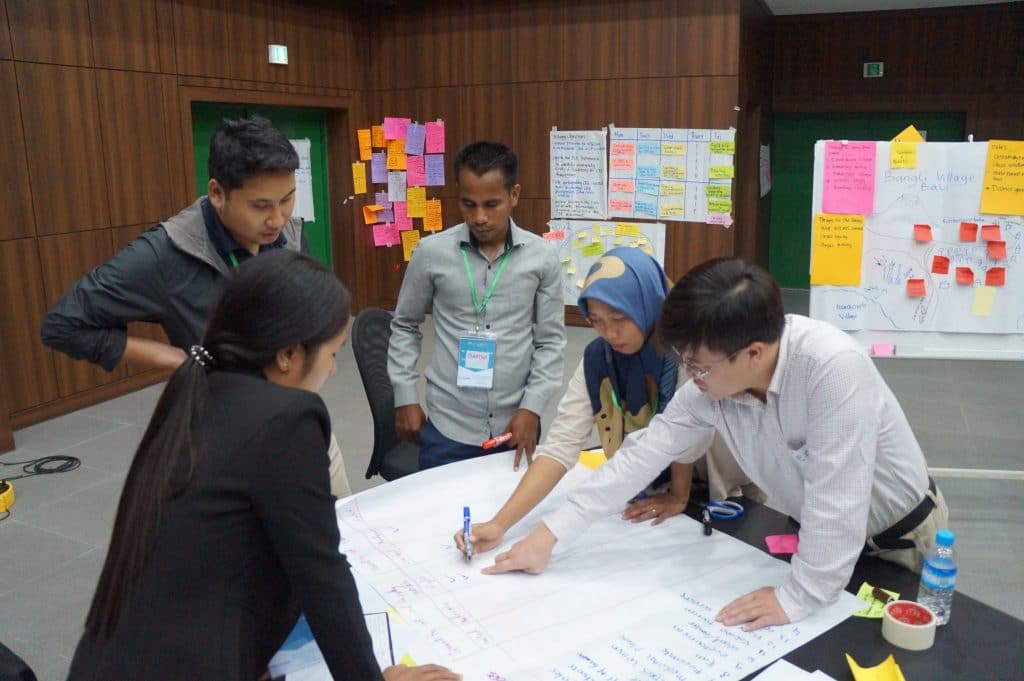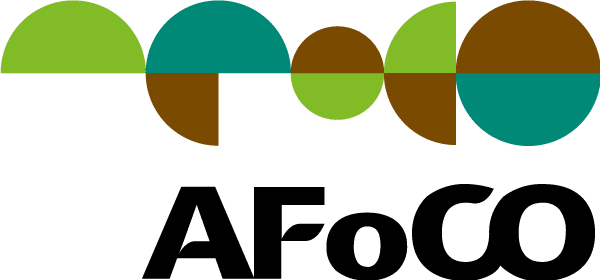9-13 December 2019, AFoCO RETC, Myanmar
Experience, knowledge, and skills for building up Community-based Enterprises in the Asia-Pacific region is still limited, and there is little understanding of an entrepreneurial mindset among local level government and NGO officers and facilitators, as well as community leaders and representatives wanting to set up their own community enterprises.
In AFoCO Member Countries, Community-based Enterprise (CBE) is at various stages of development, facing both opportunities for success and also challenges in the areas of establishment and sustainability. Community forestry has to potential to improve and secure livelihoods more secured and the development of community forest enterprises (CFE) is recognized as one of the ways to help community forestry products and services to reach markets and buyers and generate more income for local communities
The training on ‘Facilitating Community-based Enterprises’ was held at the AFoCO Regional Education and Training Center (RETC) in Myanmar on 9-13 December 2019 to provide participants with a conceptual understanding of community livelihood and CFE development as well as the basic skills and knowledge required to guide and support communities in setting up sustainable CFEs.
On the fourth day of the training, participants went on a field trip to Bamboo CF, handicraft cottage, and handicraft shops in Kawhmu Township to practice using the tools and analytical framework learned during the in-class learning sessions. At the end of the training, participants were invited to share about future actions they wish to take to apply what they have learned from the training.

At the training course, participants from eight AFoCO Member Countries learned how to explain and assess Community forest enterprise (CFEs) principles in a community forestry (CF) context; apply the Sustainable Livelihoods Approach (SLA) framework to identify community assets and conditions that help develop these assets for CFE; explain the forest products and services screening and ranking tools; use the value chain tool to assess potential forest products and services and identify interventions along the value chain for sustainable CFEs, and explore risks and enabling conditions for sustainable CFE initiatives in the CF context.
Organized in conjunction with RECOFTC, this course was led by trainers of the RETC’s Training of Trainers Program.



